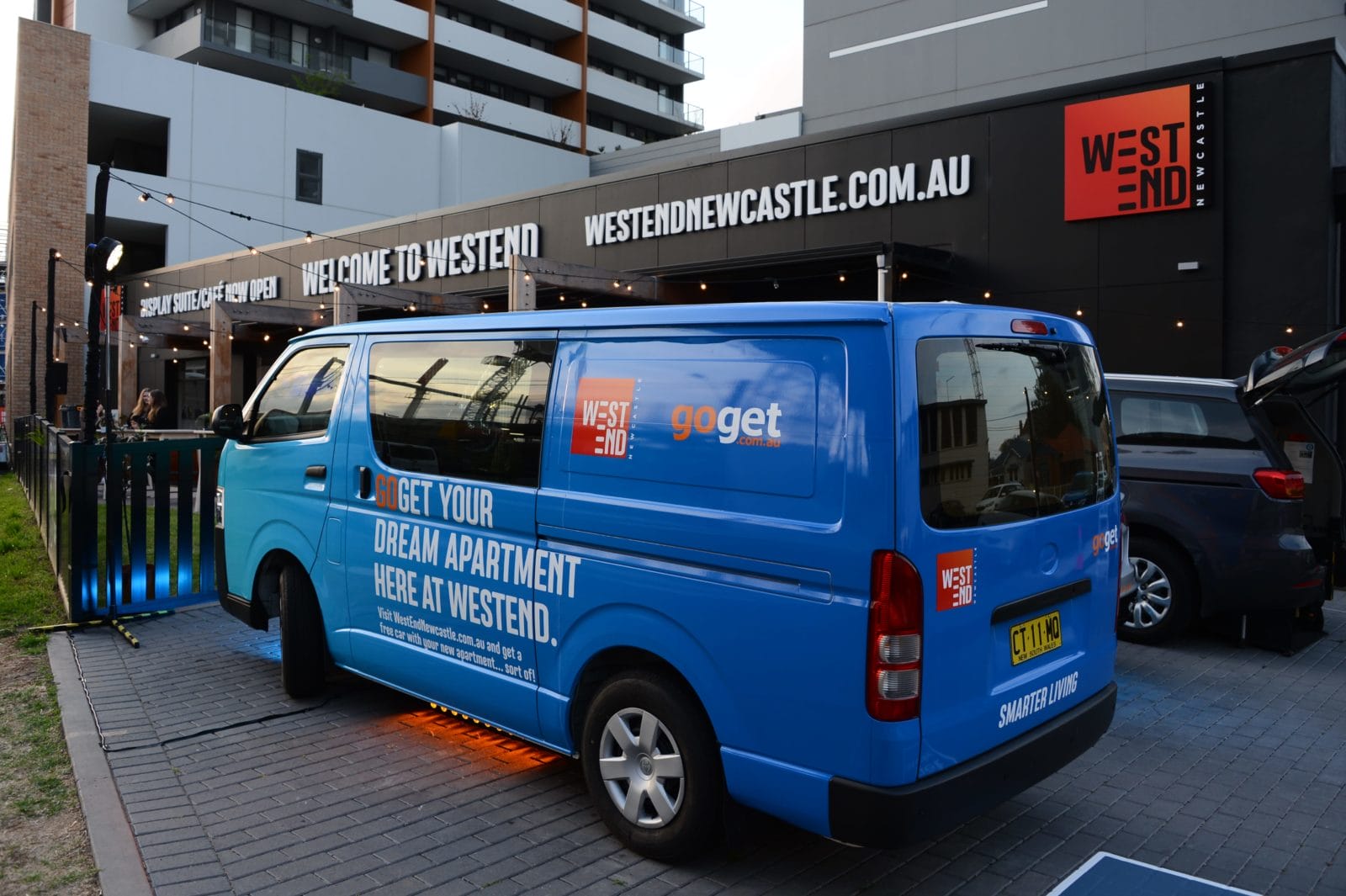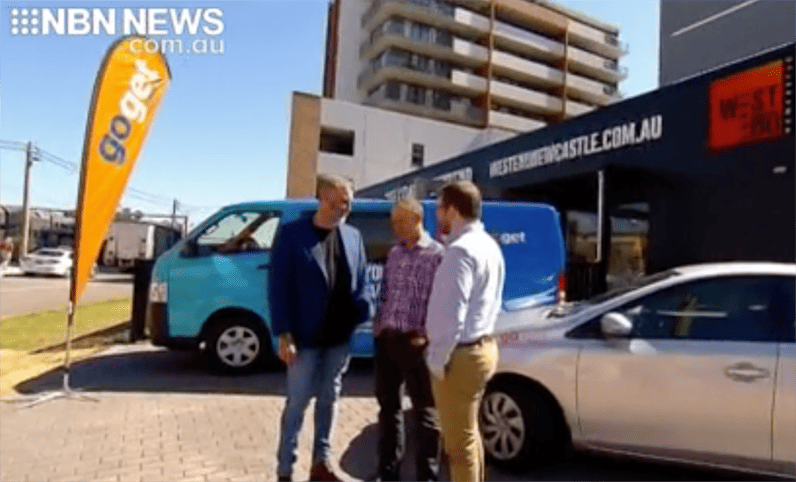By Max McKinny
Development company Thirdi Group has doubled down on its GoGet car-share partnership, investing in two wheelchair-accessible people movers.
The purpose-built vans will be available to the public through GoGet but have been purchased by Thirdi Group to serve the 20 NDIS-designed apartments within its Stella and Eaton developments in Wickham.
Thirdi Group and GoGet announced a partnership earlier this month that will see up to 20 cars housed in the basements of Stella and Eaton.
“Our commitment to delivering the best possible NDIS apartments in Newcastle doesn’t start and stop at the front door of our apartments,” Thirdi Group director Luke Berry said.
“Residents and their families will quite literally be able to catch a lift to their basement and our [vans] will be full of fuel and ready to drive.”
Peter Hojgaard-Olsen, who with his son inspired GoGet to develop its first shared vehicle for people in wheelchairs, said it was pleasing to see they would soon be hitting the road.
“Shared vehicles like these make it possible to get transportation to where you need to go,” he said.
“Flexible transport options can also benefit an ageing population.”
NSW Minister for Families, Communities and Disability Services, Gareth Ward, commended Thirdi Group and GoGet for the innovative initiative.
“This service will provide people with disability or limited mobility another transport option to help them lead active and fulfilling lives,” he said.
Thirdi Group’s decision to build 20 NDIS-designed apartments in Wickham came after a similar initiative at one of its developments in Belmont almost seven years ago, when the company delivered 10 NDIS units in The Belle Apartments.
Mr Berry said the Stella and Eaton developments were now at a stage of development where, if there was demand, standard residential apartments that were yet to be sold could be transformed for NDIS needs.
He said he hoped the company’s investment to incorporate disability-based housing within its standard apartment developments could inspire other developers.
“Our bathrooms are typically bigger, the toilets are bigger to allow for wheelchair accessibility, but even what we call care automation,” he said.
“Our properties will allow people with disabilities to open and close doors by touch activation, we can even design our kitchen and bathrooms to have bench tops that rise and go forward.
“They’re able to be customised based on the tenant.”
Full Article Here:
Subscribe for Updates
Stay informed about our latest projects, investment opportunities, and industry insights by subscribing to our exclusive Third.i Group updates.
"*" indicates required fields



